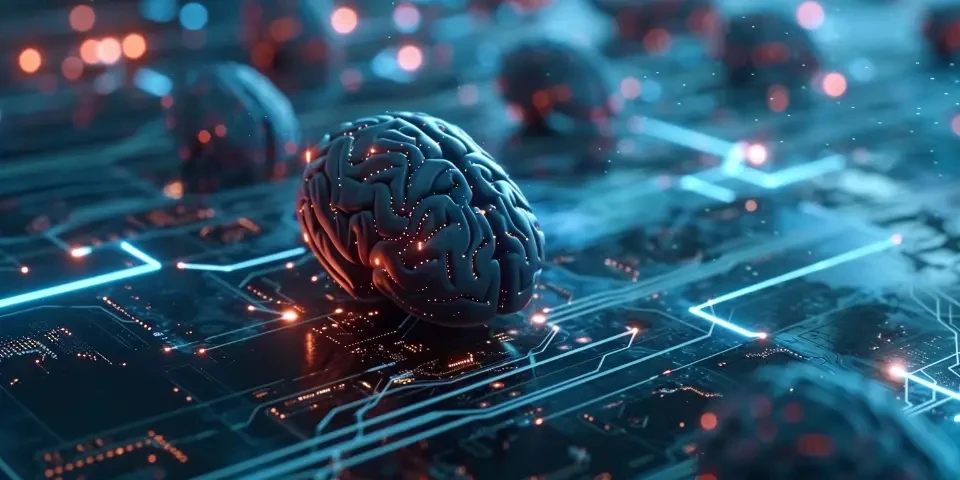Unraveling the Enigma AI Poetry and the Human Experience
In recent years, Artificial Intelligence (AI) has made significant advancements in various fields, including poetry. AI-powered systems are now capable of composing verses that mimic the human experience, igniting conversations about the intersection between technology and artistry. Unraveling the enigma of AI poetry opens up intriguing discussions about its impact on the human experience, the ethics of creativity, and the future of artistic expression.
The Evolution of AI Poetry
AI poetry has evolved from early experiments in algorithmic verse generation to sophisticated machine learning models that can produce compelling and emotionally evocative poems. These models analyze vast amounts of poetry, literature, and human-written content to understand patterns and generate original verses. The progression of AI poetry reveals the growing adaptability of AI systems, showcasing their ability to replicate human creativity.

However, the rise of AI poetry has also sparked controversies, with critics arguing that it diminishes the value of human labor and creative expression. It prompts a vital discussion about the nature of art and the role of AI in shaping artistic endeavors.
The Human Experience in AI Poetry
One of the most fascinating aspects of AI poetry is its exploration of the human experience. By analyzing human-created content, AI models can capture emotions, philosophies, and societal narratives, replicating them in poetic form. This raises questions about the essence of human emotions and the intricate dynamics between human experiences and technological replication.
Some argue that AI poetry can broaden our understandings of what it means to be human. Its ability to convey emotions and transcend language barriers allows for cultural exchange and empathy-building on a global scale. Others remain skeptical, emphasizing the unique qualities of human poetry that cannot be replicated by machines.
To what extent can AI truly grasp the complexity of human emotions? This provocative question lies at the heart of the AI poetry discourse, enticing further research and exploration.
The Ethics of AI Poetry
When discussing AI poetry, ethical considerations inevitably arise. As AI becomes more proficient at generating verses, should the roles of poets and machines be redefined? The ethical implications of AI poetry extend beyond questions of authorship and intellectual property. It also raises concerns about the potential erosion of originality, authenticity, and the human touch in artistic creations.
Moreover, the biases present in the training data used to develop AI poetry models demand scrutiny. If these systems are trained on a limited range of sources, they may perpetuate stereotypes or favor certain cultural perspectives. Striking a balance between training AI models on diverse content and avoiding biased outputs is a crucial challenge in the development of AI poetry.
The Future of Artistic Expression
The emergence of AI poetry highlights the ever-evolving landscape of artistic expression. It blurs the boundaries between human and machine creativity, challenging long-held beliefs about the exclusivity of human artistry. While some fear that AI might replace human poets, others envision a future where AI becomes an essential tool for artists, augmenting and inspiring their creative processes.
As AI technology continues to advance, it is crucial to foster a symbiotic relationship between human poets and AI poetry systems. Collaboration and exploration can yield intriguing and innovative poetic compositions unattainable by either humans or machines alone.
Frequently Asked Questions
Q: Can AI poetry be considered genuine art?
A: The definition of art is subjective and varies among individuals. While AI poetry showcases creative capabilities, some argue that genuine art relies on human emotions and experiences.
Q: Can AI poetry evoke the same emotions as human-written poetry?
A: AI poetry can evoke emotions, but the depth and complexity of human emotions remain a point of distinction. The personal touch in human-written poetry often resonates differently.
Q: What are the benefits of AI poetry?
A: AI poetry can democratize access to poetry by eliminating language barriers and enabling cultural exchange. It also offers a novel perspective on human experiences and emotions.
References
1. Li, X., & Karatzoglou, A. (2020). A Review of Neural Poetry Generation. arXiv preprint arXiv:2005.03710.
2. Guo, S., Cheng, R., & Hui, P. (2019). DeepAI: Automatic Poetry Generation and Rhyme Assessment with Multi-scale Structure-conditioned Attention Networks. arXiv preprint arXiv:1910.01298.
3. Douthat, R. (2021). AI is getting good at poetry. The New York Times.]
Welcome to Wemate AI! Bring your wildest ideas about time travel, lunch combos, and whether cereal qualifies as a soup. Let’s ponder the unponderable!
Explore your companion in WeMate